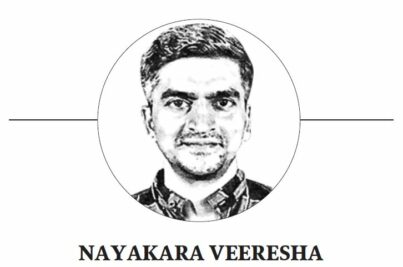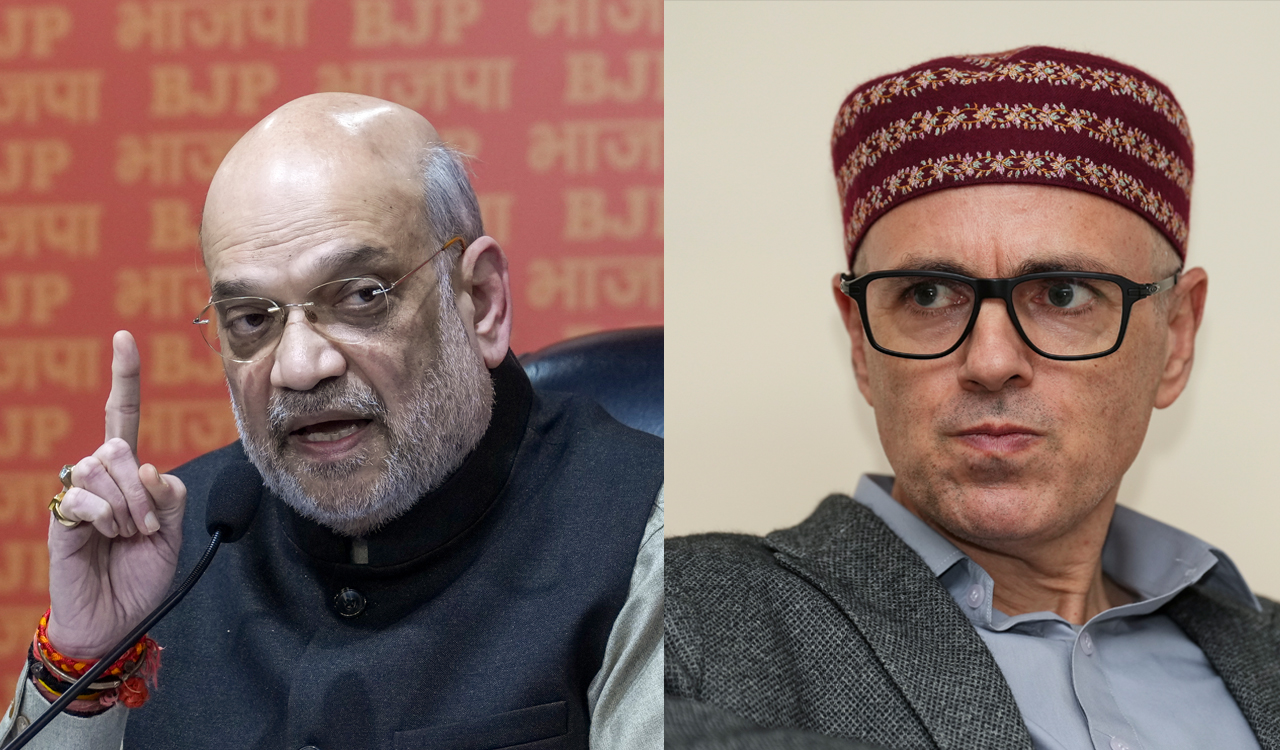Opinion: A Legitimation Crisis
Transition from ‘we the people’ to ‘we the citizens’ is needed to sustain constitutionalism

By Nayakara Veeresha
The 18th general elections are on in India along with four State Assembly elections. This election has brought the Constitution to the forefront as one of the electoral issues between the two national parties. At this juncture, it is imperative to take a critical look at the contemporary developments that have pushed the Constitution into the phase of Jurgen Habermas’ ‘legitimation crisis’.
The German philosopher and social theorist conceptualised four theorems of crisis — economic, rationality, legitimation and motivation. Of course, Habermas preferred to call these situations crisis tendencies and not as crisis alone.
“A legitimation crisis can be predicted only if expectations that cannot be fulfilled either with the available quantity of value or, generally, with rewards conforming to the system are systematically produced”. To contextualise this to the Constitution of India, its provisions of individual rights and collective well-being of society are the expectations and aspirations set forth by the same. The individual rights are ingrained in the Preamble in the form of Fraternity, Equality, Liberty and Justice of a Sovereign, Secular, Socialist Democratic Republic as a collective political system.
Rationality Crisis
Article 1 of the Constitution states that ‘India, that is Bharat shall be a union of States’. The politics of the union government’s being played out through probe agencies in the opposition-led States has captured the state’s legitimacy to govern; most significantly, the rising tussle between the union government and southern States led by Karnataka, Kerala and Tamil Nadu in voicing the fiscal rights of the States. The democratic rights of the States were denied in the share of taxes and its devolution formula for the distribution of funds. Some of the States found the criterion adopted for devolution irrational thereby augmenting the Habermas theorem of ‘rationality crisis’. Pertinently, the rationality crisis occurs when the administrative system’s rationality collapses by operating the system to benefit some individual capitalists rather than in accordance with Article 39{c} of the Constitution.
The downgrading of Jammu & Kashmir from State to union Territory; subsequent judicial approval, Chandigarh’s mayoral election episode, Chief Election Commissioner and Other Election Commissioners (Appointment, Conditions of Service and Term of Office) Act, 2023, are only the tip of the iceberg of the administrative rationality crisis and its profound impact on the democratic governance.
Systematic limits and unintended side effects of administrative intervention in the cultural tradition are the core aspects of the legitimation crisis. The Act of appointing CEC and ECs effectively removes the systematic limits thereby making the process of selection non-transparent and unaccountable.
The Ram temple opening ceremony in Ayodhya by the Prime Minister in the absence of the President of India has inducted the state into the domain of religion in a subtle yet substantive manner, and demonstrated the ‘class structure’ which is the root cause of the ‘legitimation deficit’. Religion is part and parcel of culture and tradition; the state’s intervention in this cultural domain has profound implications on the legitimacy of the state both in the short and long run. Such practices widen the trust between the citizens and the modern state especially the marginalised sections of society. In essence, the legitimation crisis is an identity crisis.
State of Disequilibrium
The identity of the Constitution is under siege now with the take-over of majoritarian in place of democratic governance framework as envisaged in the Constitution. The state’s focus and investment in the cultural domain of the people reflects the politics of hegemony and identity rather than emphasising on governance and development. The fraternity between people and the communities is in a state of disequilibrium with the precedent set forth by identity politics by the national parties. This is deepening the sense of alienation among the religious minority communities.
More and more court cases are being filed to claim and assert cultural nationalism. No nation thrives on disrespecting or destruction of other religions, especially in a country like ours wherein multiple religions have synchronised and harmonised throughout history and civilisation. The ruling dispensation’s efforts to rewrite history by changing the names, places and other such activities to establish the monotonous religious supremacy over the diversity of religions and its beautiful exposition in day-to-day life has eroded the state legitimacy in the country. The depoliticised public realm is being converted into a politicised public platform wherein importance is accorded to a particular religious’ identity in place of secular tradition and practice.
Enlightened Citizenship
In the context of constitutionalism, the evolution of the doctrine of ‘basic structure’ during the Kesavananda Bharati vs State of Kerala verdict (1973) is a significant moment. Former Chief Justice of India Ranjan Gogoi called for revisiting the basic structure doctrine. Some of the basic or essential features as propounded in the Kesavananda verdict stand sieged at this critical time. The supremacy of the Constitution, federal and secular character, republican and democratic form of government, separation of powers and dignity of the individual are undergoing severe stress.
The dangers to the Constitution are really in its gradual erosion of essential features of basic structure. The unilateral passage of Bills with little debate and discussion, reduction in the number of Bills being referred to parliamentary committees, capture of State’s legitimate rights through the office of Governor who is supposed to act as guardian of the Constitution, tussle between the union government and judiciary, farmers’ protests for the legal minimum support price, increased number of Unlawful Activities (Prevention) Act (UAPA) cases against individuals who voice against the policies of the government and curbing the funds to critical civil society organisations, and media capture are indications of the legitimation crisis of the Constitution.
The responsibility lies in informed and active citizenry to protect and preserve the Constitution. A transition from ‘we the people’ to ‘we the citizens’ is needed to sustain constitutionalism in the country.

(The author is Independent researcher and writer on issues of governance and development. Views are personal)
Related News
-
Mohali building collapse: Five still trapped under rubble, rescue ops underway
-
Omar meets with Amit Shah to seek timeline for early statehood restoration
-
Drop songs glorifying alcohol, violence: Chandigarh child rights body urges Dosanjh before show
-
Delhi AAP MLA Naresh Yadav gets 2-year sentence in 2016 desecration case
-
Hyderabad auto driver foils attempt to kidnap young woman, five held
2 mins ago -
Haiti gang attack on journalists covering hospital reopening leaves 2 dead, several wounded
1 hour ago -
21 dead as Mozambique erupts in violence after election court ruling
2 hours ago -
Cartoon Today on December 25, 2024
9 hours ago -
Sandhya Theatre stampede case: Allu Arjun questioned for 3 hours by Chikkadpallly police
10 hours ago -
Telangana: TRSMA pitches for 15% school fee hike and Right to Fee Collection Act
10 hours ago -
Former Home Secretary Ajay Kumar Bhalla appointed Manipur Governor, Kerala Governor shifted to Bihar
10 hours ago -
Hyderabad: Organs of 74-year-old man donated as part of Jeevandan
10 hours ago




